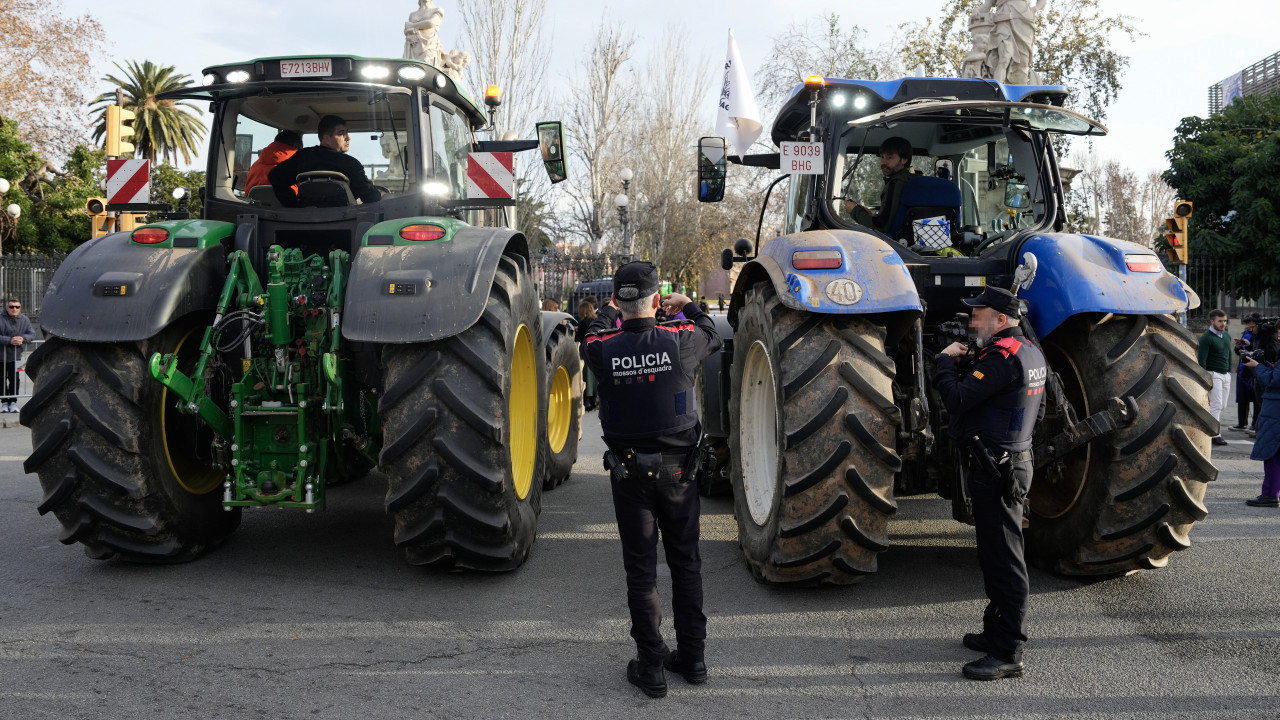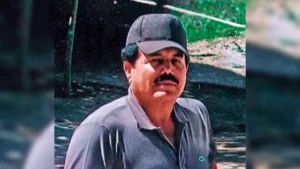
CAround a hundred tractors also remain on the streets of Barcelona, after on Wednesday close to two thousand of these vehicles entered the center of the city, the second largest in Spain.
Two groups of 50 tractors kept two of the city’s central avenues (Diagonal and Gran Vía) blocked throughout the night and in the morning part of them began a slow march to the regional parliament, where the farmers were received by parties and the presidency of the assembly.
On Wednesday, farmers’ representatives were also received by the president of the regional government of Catalonia, Pere Aragonès, after nearly two thousand tractors made a slow march along the region’s roads, until they reached the city center, causing queues of traffic of tens of kilometers during the day.
According to Spanish traffic authorities, today there continues to be congestion at some access points to Barcelona and dozens of roads, including motorways, are blocked or disrupted also in the regions of Navarra, Valencian Community, Castile and Leon, Castile La Mancha, Andalusia and Extremadura .
On this third day of protests across the entire territory of Spain, there are fewer major roads, which are currently closed, according to information from the authorities.
In the previous two days, the demonstrations also blocked access to logistics centers, such as ports in the Mediterranean.
Security forces on Tuesday detained 12 people and identified more than 2,500 in the demonstrations.
The protests on Tuesday and Wednesday were, for the most part, not reported to the authorities and took place outside the organization of Spain’s large agricultural confederations.
The confederations also announced a calendar of demonstrations for the coming weeks, which begin today, with gatherings called for various parts of Spain, in the regions of Castile La Mancha, Aragon and Castile and Leon).
So far, there is no record of roadblocks connecting roads to Portugal.
The National Federation of Transport Associations in Spain said in a statement on Wednesday that 80,000 trucks had already suffered the impact of farmers’ protests in the first two days of demonstrations, as they had been blocked, either permanently or for some period of time. time, circular highways around Madrid and those connecting central regions with Mediterranean ports.
European farmers, including in Portugal, have taken to the streets in recent weeks to demand the relaxation of the European Union’s Common Agricultural Policy (CAP) and more support for the sector.
The Prime Minister of Spain, Pedro Sánchez, today reiterated the Madrid Government’s commitment to simplifying the CAP and facilitating the adaptation of European standards.
Pedro Sánchez also revealed his intention to review the Food Chain Law, to increase farmers’ earnings, and to apply the principle of reciprocity regarding quality and production requirements to imports from third countries.
The European Commission will prepare a proposal to reduce the administrative burden on farmers, which will be debated by the 27 Member States on February 26.
On the other hand, on Tuesday, the president of the European Commission, Ursula von der Leyen, announced the withdrawal of the institution’s proposal aiming to halve the use of pesticides in agriculture by 2030, a central part of European environmental legislation, which is also one of the targets of the farmers’ protests.
Read Also: Minister of Agriculture will meet with protesters who cut off A4

Download our free App.
Eighth consecutive year Consumer Choice for Online Press and elected product of the year 2024.
* Study by e Netsonda, Nov. and ten. 2023 product of the year – pt.com
Source: https://www.noticiasaominuto.com/mundo/2498127/agricultores-estradas-cortadas-em-espanha-no-terceiro-dia-de-protestos



